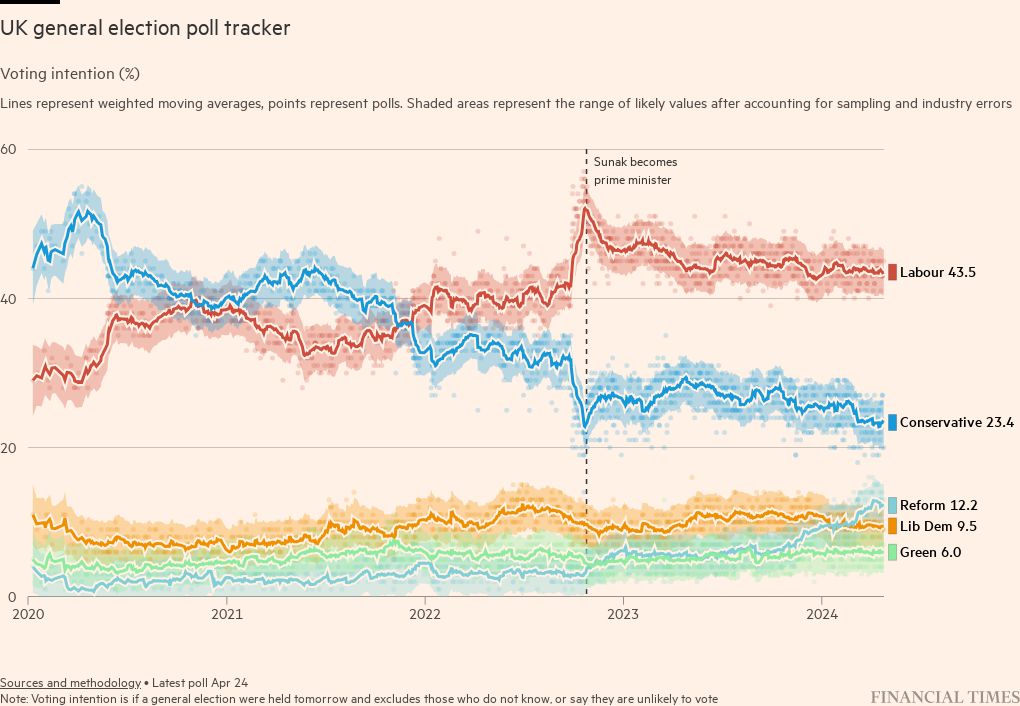Rachel Reeves’ big speech sets out political attack lines

Are you interested in accessing the Editor’s Digest without any charges? If so, then here is a great opportunity for you. You can easily unlock this latest magazine and read all the articles for free. Don't miss the chance to learn more about editing techniques and get valuable insights from the experts. Get started today and enjoy the Editor’s Digest at no cost.

Every week, Roula Khalaf, who holds the position of Editor at the Financial Times publication, curates a newsletter where she shares her preferred stories with subscribers.
This blog post is a version of our Inside Politics newsletter that can be viewed on this website. Register your email address here to receive the newsletter directly to your email inbox every weekday.
Greetings! Yesterday evening, Rachel Reeves presented the Mais Lecture and discussed several policy proposals aimed at achieving higher economic growth for a Labour government. She emphasized that this growth would lead to increased prosperity for all, as well as larger tax revenues to fund public services.
Additionally, she presented various political points that could potentially be repeated by a multitude of politicians in the case that the Labour party emerges victorious in the upcoming election. My personal reflections on these ideas are detailed below.
Georgina Quach is the editor of Inside Politics. If you missed the last edition of the newsletter, you can find it here. We welcome any rumors, opinions, or feedback that you might have. Please send them to [email protected].
The opposition finance minister put forth several noteworthy political points (although, to be fair, the entire message was inherently political, but I believe there are three exceptionally poignant arguments that warrant consideration). To begin, her initial argument is essentially a more astute iteration of the traditional Labour party stance that the last 14 years have been squandered.
From the year 2010 onwards, there have been two significant flaws in the way economic policies have been developed. Initially, there was a focus on austerity, followed by instability. Austerity policies involved implementing strict fiscal policies despite the economy having historically low interest rates and surplus capacity.
It caused extensive harm to our society and our communal amenities. In addition, the government had the opportunity to obtain loans and make cost-effective investments, yet the decision not to do so was a significant error of neglect throughout history.
This isn't just a problem in the short-run economic sense, but it also means we missed out on a great chance to invest in things that would have been really useful. Instead, we didn't invest enough and it ended up hurting us in terms of skills and resources.
In simpler terms, Reeves argues that the Conservatives have made three major mistakes: their approach to using government intervention to support economic growth, the harsh budget cuts made between 2010 and 2017, and their failure to take advantage of historically low borrowing rates. If the Labour party wins the upcoming election, they are likely to highlight these criticisms frequently. The main political message they will aim to convey is that they have been left with a significant mess to clean up and will require at least ten years to rectify the issues.
The fact that most people agree with the statement "UK governments should invest more money in infrastructure" is a benefit. The only time this wasn't the case was during a period when John Major and Tony Blair were focused on private finance initiatives, which had some negative consequences. This agreement allows Reeves to make a statement without facing opposition:
The recent Budget, dubbed as 'mini,' shook things up as it included unfinanced tax reductions and aimed to sabotage our self-sufficient economic foundations. The Bank of England's base rate was only 0.1% in October 2021. However, in just over two years, it has reached 5.25%. Before, the OBR estimated that the net debt interest would total £29bn for this year, but now they predict it will hike up to £82bn.
Honestly, let's get real. While Liz Truss's "mini" Budget might have had some short-term impacts, it is not the sole reason why interest rates have reached 5.25 per cent. However, Labour's focus during the upcoming election (and beyond) will be to connect any issues with the British economy to the Truss experiment. This strategy has a few benefits, including the fact that other potential culprits (such as Vladimir Putin, Covid-19, Brexit, and austerity measures) are either beyond the control of the UK government or were previously supported by British voters.
The Labour party finds it more convenient to blame the 81,326 members of the Conservative party who elected Truss as the Prime Minister than to put the responsibility of the UK's economic hardships on Brexit, for instance.
Today, Labour's task is made easier by Rishi Sunak's difficulty in explaining his actions. As the prime minister has not given a clear reason for opposing Truss and criticizing her performance, it is simpler for Labour to associate Sunak with Truss. This will be even simpler in the future because the next leader of the Conservative party is likely to share Truss's views unless there is a major shift in the party's direction.
The concept that "the Conservatives conducted a major trial, and that's the reason behind the current situation" will continue to be a prevalent political assertion for a while, despite the fact that it is presently incorrect.
I recently finished reading Mick Herron's Slough House novels, and I just got to Bad Actors, which is the newest one in the series. I think they are excellent and highly addictive, but now I'm starting to feel a bit sad because there isn't another one to read after this. Additionally, it's extra enjoyable because the route I take to work goes by the Barbican, which I think is a really beautiful location that Herron should appreciate.
In a recent development, it has been reported that Jeremy Hunt, a notable political figure, has suggested to a prominent entrepreneur that they should consider running for parliament if they believe they can perform better than the current government. This advice has been relayed by individuals who are knowledgeable on the matter.
UK's inflation rate experienced a significant decline in February, dropping to 3.4%. This has strengthened the suggestion made by economists, who have been urging the Bank of England to reduce interest rates to bring inflation under control. It is now more likely that the bank will take action in 2021.
Scottish Muslims are faced with a difficult choice between the Labour and SNP parties. The strong emotions regarding the Gaza conflict in the country could have an impact on the outcome of some closely contested races. This could have a negative effect on the Labour Party's chances of success, while simultaneously helping boost the SNP's position in the upcoming general election.
The UK parliament's spending watchdog has shared that using converted military bases and a barge as accommodations for asylum seekers cost £46mn more than if hotels were utilized for the same purposes. The information was released by NAO.
Let's hope that the upcoming general election will take place in October, according to recent comments made by Jeremy Hunt. He also expressed the possibility of another budget or autumn statement before the election, stating: "It is my desire for there to be another fiscal event during this parliamentary term."
The Financial Times has a poll tracker that is regularly updated in the United Kingdom. This combines polls from various well-known British pollsters to gather data on voting tendencies. By visiting the FT poll-tracker page, you can learn more about how this data is collected and examine demographic information like age, gender, and location.
You are currently viewing a still image of an interactive visual representation. This could be because you're not connected to the internet or because JavaScript isn't functioning in your web browser.
Top Newsletters To Subscribe To
Don't miss out on some exceptional journalism that is a must-read. Register now to get it.
Get exclusive perspectives and evaluations from leading analysts with FT Opinion. Register now to receive their thought-provoking content.









































